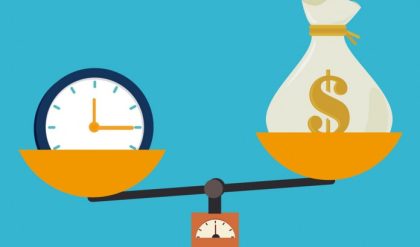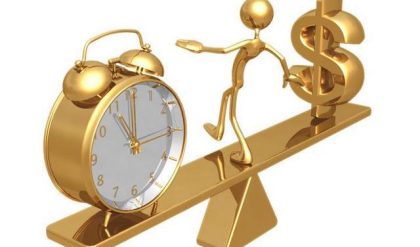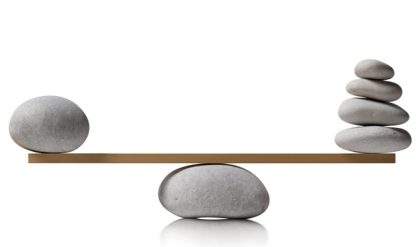Within the study of macroeconomics, there are certain basic goals for economic systems. Generally speaking, desirable goals include economic growth, full employment, economic efficiency (achieving the maximum output for the available resources), price stability and balanced trade. Most economists would also include economic freedom (the right to freely choose to work, invest and consume according to one’s inclinations) as a key goal and some would also point to an equitable distribution of income as a worthwhile goal.
When considering the concept of market efficiency, it is also important to note the existence of those who basically oppose the notion that free markets are the desirable mechanism for allocating resources. In particular, egalitarianism holds that every participant in an economy should get an equal share, untying compensation from productivity.
While egalitarianism may be an extreme means of dealing with inequalities economies, these inequalities are important. Inequalities can arise from differences in abilities, differences in human capital, discrimination, individual preferences, market power and simple luck. Generally speaking, even the staunchest laissez faire economists oppose discrimination as it interferes with the efficient operation of the economy.
The Gini ratio is one commonly-used metric for economic inequality; in particular it measures the inequality of income distribution across an economy. (For more, see The Gini Index: Measuring Income Distribution.)
While there is still some academic interest in command and communist economics, and a fairly thriving interest in mixed economies (where there is a mix of government planning and market economics), most economic theory focuses on market systems. Market systems feature private property and economic participants are motivated by self-interest to maximize their happiness and profits.
Perfect competition is a market in which there are many small independent consumers and producers. Firms produce standardized products and there are no barriers to entry or exit. Firms competing in perfect competition are price-takers. By and large, perfect competition is a thought object (having no barriers to entry or exit is rare), but the market for freelance writing comes close. (For more, see Perfectly Competitive Markets.)
In a monopoly, there is a single producer and there are no close substitutes to that product. In a monopoly there are extremely high barriers to entry (if not outright prohibition of competition) and firms are price-setters without government intervention.
As most readers will realize, true perfect competition and true monopoly are quite rare in actual practice. More common, though, are monopolistic competition and oligopolies.
Monopolistic competition features a relatively large number of firms offering differentiated products. Barriers to market entry and exit are relatively low. Oligopoly sees a few large producers competing in a market, with either differentiated or standardized products. There are relatively significant barriers to entry, and some mutual interdependence among the producers. (For related reading, see Economic Basics: Monopolies, Oligopolies, and Perfect Competition.)
Nature of Macroeconomics
Macroeconomics is basically known as theory of income. It is concerned with the problems of economic fluctuations, unemployment, inflation or deflation and economic growth. It deals with the aggregates of all quantities not with individual price levels or outputs but with national output.
As per G. Ackley, Macroeconomics concerns itself with such variables −
- Aggregate volume of the output of an economy
- Extent to which resources are employed
- Size of the national income
- General price level
Scope of Macroeconomics
Macroeconomics is much of theoretical and practical importance. Following are the points covered under the scope of macroeconomics −

Working of the Economy
The study of macroeconomics is crucial to understand the working of an economy. Economic problems are mainly related to the employment, behavior of total income and general price in the economy. Macroeconomics help in making the elimination process more understandable.
In Economy Policies
Macroeconomics is very useful in an economic policy. Underdeveloped economies face innumerable problems related to overpopulation, inflation, balance of payments etc. The main responsibilities of government are controlling the overpopulation, prices, volume of trade etc.
Following are the economic problems where macroeconomics study are useful −
- In national income
- In unemployment
- In economic growth
- In monetary problems
Understanding the Behavior of Individual Units
The demand for individual products depends upon aggregate demand in the economy therefore understanding the behavior of individual units is very important in macroeconomics. Firstly, to solve the problem of deficiency in demand of individual products, understanding the causes of fall in aggregate demand is required. Similarly to know the reasons for increase in costs of a particular firm or industry, it is first required to understand the average cost conditions of the whole economy. Thus, the study of individual units is not possible without macroeconomics.
Macroeconomics enhances our knowledge of the functioning of an economy by studying the behavior of national income, output, savings, and consumptions.





